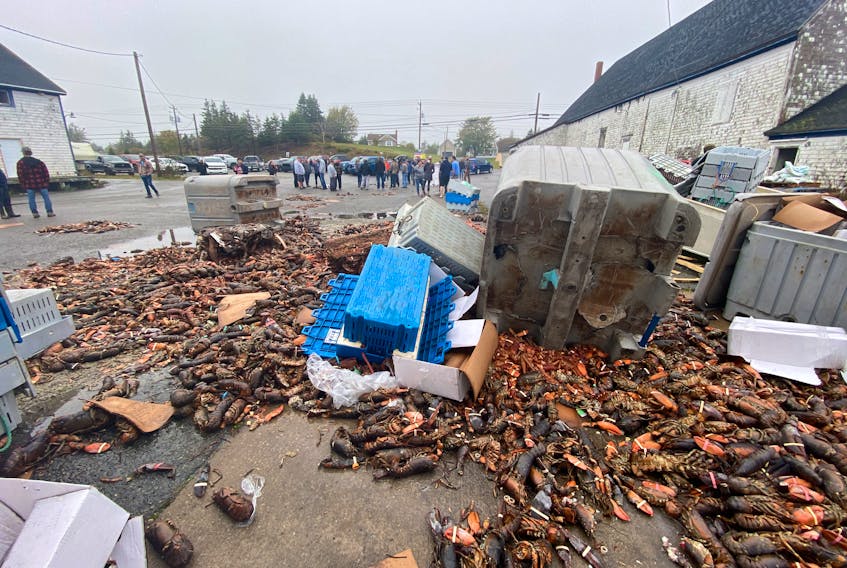Like many people, I have watched the escalating dispute between commercial fishers and Indigenous ones in Nova Scotia with growing concern.
It's disheartening to see this situation has been allowed to progress to the point that violence and intimidation are becoming daily occurrences and fire has burned property used by Indigenous fishers to store their catches of lobster.
We’ve been very fortunate that so far, nobody has been seriously injured, but if the federal government doesn't act soon, it is quite possible someone will lose their life and the situation may pass a point in which a real solution is possible without further violence.

There is supposed to be an increased recognition of racism in Canada and a commitment by the federal government to work on reconciliation with our Indigenous peoples. It’s frankly shocking that we are seeing such a level of violence being used to intimidate an Indigenous group. This is not the way that any group of people should be treated and it constitutes criminal acts, which should be prosecuted under the laws of this country.
Allowing these acts to escalate, and the appearance that those responsible are not being held accountable, reinforces the colonial history under which our Indigenous peoples lived for generations and leaves the impression that despite words to the contrary, things are not going to change.
While it’s vital these violent acts be condemned and dealt with, it’s equally important that we do not condemn all commercial lobster fishers in Nova Scotia and assume they are all racist. While it seems clear there is an element of racism in this situation, there are also legitimate economic concerns being voiced by commercial fishers that are not being heard clearly because of the focus on the violence.
Concerns about this fishery being self-regulated, off-season, and being conducted with one set of rules for one group and separate rules for the other group are issues that merit attention and likely underline the strong response by commercial fishers much more than any racist sentiment.
Simmering for decades
The biggest failure in this entire situation lies at the feet of the federal government. The roots of this dispute have been simmering for decades and the concerns of both sides are well known.
Once the first signs of conflict started to arise weeks ago, the federal government should have stepped in to mediate; standing back with pronouncements and expecting the two groups to work it out on their own is not leadership, especially with the history of conflict that already existed. Allowing the situation to escalate to its current point is a true failure to recognize the severity of the dispute and puts the cause of reconciliation backwards.
In Atlantic Canada, the fishery is a crucial industry, and many livelihoods depend on its continuing success. We have seen the impact on our communities when fisheries fail; the health of this resource is important to all of us.
The Indigenous peoples of this region have a legitimate right to participate in these fisheries, and the commercial fishers who depend on it for their livelihoods have a legitimate right to protect their interests as well. Violence and intimidation are not the way to resolve these concerns. Pitting the interests of one group against the needs of the other will not help; this is not a case of "us versus them."
Reconciliation means coming together to reach a consensus on how this resource is to be shared among all; this needs to happen now, and the federal government needs to be proactive and take a leadership role in bringing this about before the dividing lines become too set in stone to resolve.
Brian Hodder works in the field of mental health and addictions. He can be reached at [email protected].









